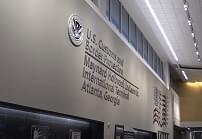March 10, 2020–11:10 a.m.
NEWS RELEASE
 As the coronavirus continues to make headlines, many Americans may wonder what to do about their travel plans. Although the decision to travel is a personal one, AAA is providing information on travel safety and insurance to help travelers make informed decisions.
As the coronavirus continues to make headlines, many Americans may wonder what to do about their travel plans. Although the decision to travel is a personal one, AAA is providing information on travel safety and insurance to help travelers make informed decisions.
“This remains a very fluid situation, with things changing every day,” said Montrae Waiters, spokeswoman, AAA – The Auto Club Group. “Travel providers are adjusting everything from policies to pricing, many of which could benefit you the traveler. That’s why it’s important to stay in contact with a trusted travel advisor, to see what your options are before rushing to make any potentially costly changes on your own.”
Travel – Is it still safe?
AAA encourages travelers to follow recommendations from the U.S. State Department. Currently, the United States recommends Americans avoid all nonessential travel to China, Iran, South Korea and Italy. Traveling anywhere else is a personal decision you have to make based on all facts available.
If you are feeling sick, do not travel. Even if you are not sick, talk to your health care provider about their medical recommendations, especially as it may relate to your age and personal health. Become familiar with the Center for Disease Control’s recommendations.
Cruise Lines International Association (CLIA) has announced the adoption of new screening policies for its member cruise lines, including denying boarding to anyone who has traveled in South Korea, Iran, China, and parts of Italy within 14 days prior to embarkation. Additionally, cruise lines are conducting enhanced illness screenings for many passengers prior to departure and are using enhanced sanitation practices.
Packing Tips for Peace of Mind
- Travel with all necessary travel documentation, including health insurance cards.
- At the top of your packing list, AAA recommends that travelers pack an alcohol-based hand sanitizer with at least 60% alcohol and disinfecting wipes.
- Pack any extra supplies you may need, including additional doses of medication, in the event your return trip is delayed.
- Know the nearest location of and contact information for the U.S. embassy or consulate. Also, enroll in the State Department’s Smart Traveler Enrollment Program (STEP), so you can be reached if the situation changes while abroad. The STEP program also provides alerts relevant to the areas that you identify as part of your travels.
- U.S. citizens who have been in China in the preceding 14 days who attempt to return to the United States will be redirected to one of 11 designated U.S. airports and undergo enhanced health screenings by CDC staff for fever, cough and shortness of breath.
Travel Insurance – Does it cover the coronavirus?
“Unfortunately, there is no ‘one size fits all’ for this subject,” Waiters continued. “Coverage options can vary based on the type of policy you purchased, when you bought it, and your trip’s departure date and destination. However, there are some travel insurance providers that are changing their policies to include coverage for claims related to the coronavirus. It may be helpful to contact your travel advisor or insurance provider directly, to review your policy and know what is covered.”
Travel insurance generally excludes epidemics. If you have a trip already booked, check with your travel providers (cruise line, airline, hotel, etc.) to see what waivers they have put in place. If you are planning a trip, also check with travel providers to understand their coronavirus-related policies and connect with a travel agent. Depending on your situation, there could be some travel insurance options for your needs.
No matter where you travel, make sure you are taking everyday preventive measures to help prevent the spread of respiratory diseases.
- Wash your hands frequently
- Avoid close contact with people who are sick.
- Avoid touching your eyes, nose and mouth.
- Stay home when you are sick.
- Cover your cough or sneeze with a tissue, then throw the tissue in the trash.
- Clean and disinfect frequently touched objects and surfaces using a regular household cleaning spray or wipe.